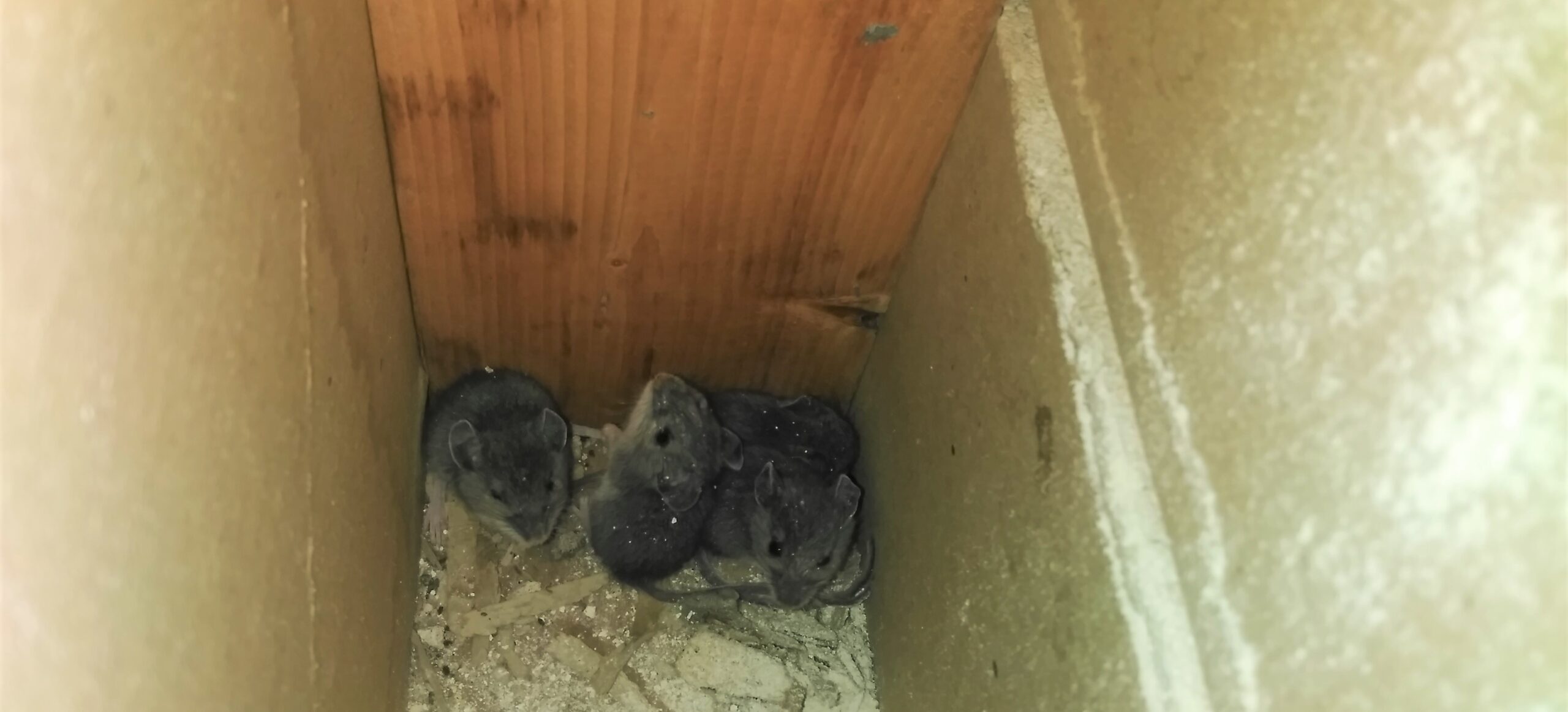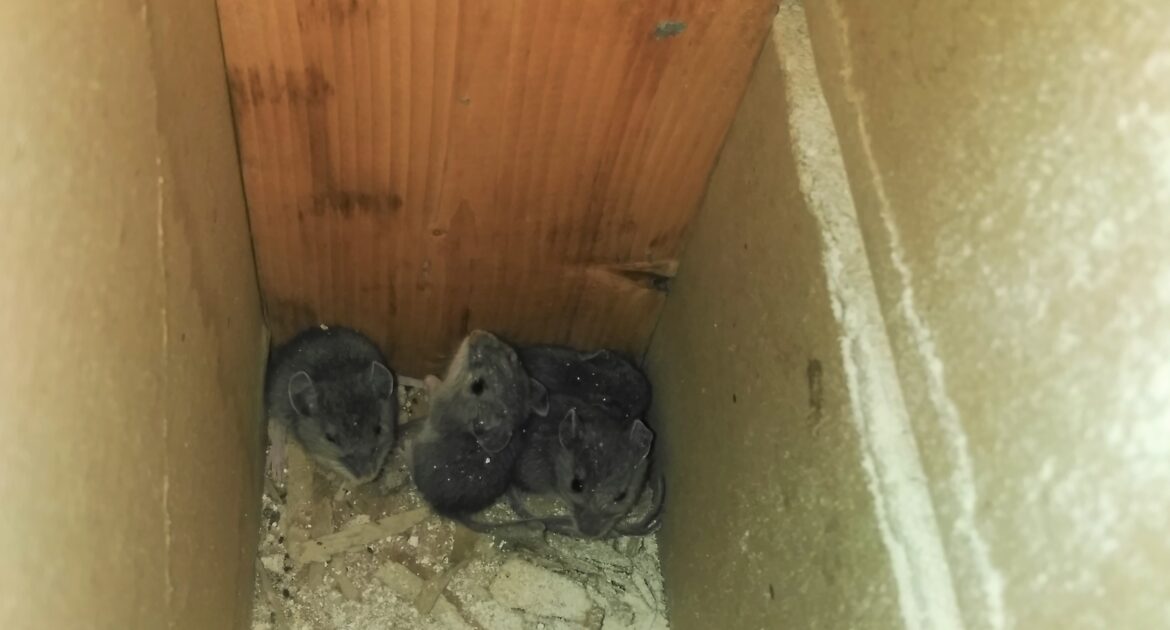If you’ve been wondering why mice infest Vinings basements and garages, you’re not alone. Many Atlanta homeowners face this issue, especially during certain times of the year. Mice are drawn to these areas for their security, shelter, and easy access to food.
The good news is that understanding why they invade can help you stop them before they move in. By focusing on humane solutions and preventive measures, you can keep your home mouse-free while respecting the environment.
Why Mice Are Attracted to Basements and Garages
Mice are highly resourceful creatures, capable of squeezing through small gaps and surviving in various environments. They are particularly attracted to areas that offer warmth, protection, and an accessible food supply. Basements and garages often fulfill these needs, making them prime locations for infestations if proper precautions are not taken.
Easy Access Points
Vinings homes, with their charm and character, often feature older construction. While those charming brick walls and classic garages add style, they can also be entryways for mice. Small cracks, and gaps around garage doors, and vents offer mice the perfect opportunity to slip inside undetected.
Did you know mice can squeeze through openings as small as a dime? This makes inspecting your home for potential entry points critical. Vinings basements, with their lower levels and often less-used entrances, are particularly vulnerable.
Shelter From the Elements
Mice are survival experts. When Atlanta winters arrive or the summer heat becomes unbearable, they seek refuge. Basements and garages provide cool, dark, and quiet spaces that mice find ideal for nesting. This is especially true in Atlanta, where the temperature fluctuations can make these areas more attractive year-round.
Food and Water Sources
Basements and garages often harbor hidden food and water sources. Whether it’s pet food containers, holiday decorations packed in cardboard boxes, or a forgotten water leak, these spaces can supply everything a mouse needs.
Humidity in Atlanta also plays a role. Condensation from pipes or standing water creates an oasis for thirsty rodents. If food spills, crumbs, or unsecured snacks are nearby, mice will stick around and multiply.
Signs of Mice in Your Basement or Garage
It’s important to recognize the signs of mice early, so you can take action before a small problem turns into a big infestation. Here’s what to watch out for:
- Droppings: Tiny, dark, rice-shaped droppings are one of the most obvious indicators of a mouse problem. You’ll often find them near food sources or along walls.
- Chewed Materials: Mice have strong teeth and will gnaw on almost anything, including wood, cardboard, plastic, or even electrical wires, which can pose a fire hazard.
- Noises at Night: Mice are nocturnal, so if you hear scratching, squeaking, or scurrying sounds in your walls, attic, basement, or garage at night, it’s a good sign they’re active nearby.
- Nesting Materials: Shredded paper, fabric, and insulation are popular materials mice use to build their nests. If you come across these piles in hidden corners, it’s worth investigating further.
The sooner you spot these warning signs and act, the easier it will be to manage the issue and prevent further damage. Don’t wait until it’s too late!
Why Prevention Matters
The question isn’t just why mice infest Vinings basements but also how we can prevent it from happening again. Prevention is key to protecting your home, keeping your family safe, and avoiding long-term damage to your property.
Ignoring a mouse infestation can have serious consequences that go beyond just the nuisance of having rodents in your home.
- Structural Damage: Mice love to chew, and they often target wires, insulation, and even wood. Over time, this behavior can create fire hazards or weaken the structure of your home, leading to potential safety issues.
- Health Concerns: These tiny intruders can carry harmful bacteria, contaminate food supplies, and even trigger allergies. The presence of mice in your home can pose serious risks to your family’s well-being.
- Long-Term Costs: If left unchecked, even a small infestation can lead to costly repairs down the line. The damage caused by mice often spreads unnoticed, resulting in more extensive—and expensive—issues over time.
By focusing on prevention and maintenance, Vinings homeowners can avoid these risks and protect their homes for the long term. Taking action now not only ensures your home remains safe but also saves you from unnecessary stress and expenses in the future.
Humane Prevention Tips for Basements and Garages
Keeping mice out of your home starts with proactive steps. These tips will help with preventing mice in Vinings garages and other areas they frequent.
Seal Every Possible Entry Point
Inspect the outside of your home, paying close attention to the foundation, windows, and any gaps under garage doors. Mice only need a small space, so don’t overlook even tiny cracks. Here’s how you can secure these vulnerable areas:
- Use caulk for cracks and holes near basements and garages.
- Add weatherstripping to garage doors to ensure they close tightly.
- Install door sweeps on basement and garage doors for extra security.
Keep Things Organized
Basements and garages tend to become storage areas, but clutter gives mice plenty of places to hide. Here are some easy fixes:
- Store items in airtight, plastic containers instead of cardboard boxes.
- Keep seasonal or rarely used items off the floor and on sturdy shelves.
- Declutter regularly to eliminate potential nesting sites.
Manage Food and Water Sources
If your basement or garage has food or water available, mice are more likely to settle in.
- Store pet food, birdseed, and other edibles in sealed, hard plastic or metal containers.
- Clean up any spills quickly.
- Fix leaks or moisture issues to dry out potential water sources.
Schedule Routine Inspections
A simple inspection can catch issues before they escalate. Whether you do this seasonally or hire a professional, staying proactive goes a long way. Look for early signs of activity like droppings or potential entry points.
Why Mice Infest Vinings Basements and Garages in Cooler Months
It’s important to recognize that Atlanta’s seasons influence mouse behavior. Cooler months drive them indoors for warmth, and basements and garages are natural targets. These spaces offer mice everything they need to survive, and without prevention measures, they can stick around until spring.
Statistically, about one-third of American households report some form of rodent issue each year, with basements and garages being the most common entry points. By understanding seasonal patterns, Vinings homeowners can better prepare their properties.
How Skedaddle Humane Wildlife Control Can Help
When it comes to mice control tips for Vinings homes, partnering with professionals makes all the difference. At Skedaddle Humane Wildlife Control, we specialize in humane methods that protect both your home and wildlife. Here’s how we can help:
- Professional Inspections: Our team checks every nook and cranny to identify vulnerabilities.
- Effective Exclusion Techniques: We seal entry points to ensure long-lasting results.
- Cleanup and Restoration: We safely clean areas of contamination, leaving your home healthy and safe.
Our approach focuses on solving the problem at its root, so you won’t have to worry about recurring issues.
Take Action Today
Your home should be a safe, comfortable space for your family—not a hiding spot for mice. Now that you know why mice infest Vinings basements, it’s time to act. Preventing mice in Vinings garages and homes is easier when you prioritize proactive maintenance and professional help.
At Skedaddle Humane Wildlife Control, we’re here to help with humane, effective, and long-term solutions. Contact us today to schedule an inspection and keep your home mouse-free—for good.
By being proactive and informed, you’ll not only keep your home safe but also add peace of mind for years to come.




